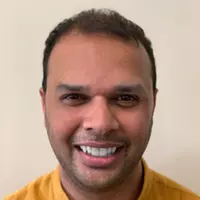What happens if you stop taking finasteride?
Finasteride is a drug that is taken to slow down or even prevent hair loss. It works by blocking the 5α-reductase enzyme, which converts testosterone into dihydrotestosterone (DHT). It is this hormone that causes hair loss. Therefore, if the enzyme is blocked through taking finasteride, DHT won’t be produced, and hair should stop falling out. In some cases, new hair may even grow, although this is not the main reason for taking finasteride and is never guaranteed.
Activity Within The Body
The usual dose for finasteride is one 1mg tablet taken daily. It needs to be taken each day, as it has a short half-life, so the effects will wear off quickly. The half-life of finasteride is approximately 6 hours in men under the age of 60 and 8 hours in men over 70 years old. Regularly taking the drug will allow stores to be kept within the body and ensure that it works consistently to prevent DHT from being produced.
So, what happens when you stop taking finasteride? Ceasing treatment will most likely cause your hair loss to resume, just as it did before the treatment. The time frame for this is between 6 and 8 months.
Can Finasteride Be Taken Long Term?
In essence, for finasteride to continue being effective in reducing hair thinning, receding, or loss, the drug must be taken daily for the foreseeable future. For some men, this could mean taking finasteride for the rest of their lives.
In studies, finasteride is safe for long-term use; however, further research is needed to determine its long-term effects.
What About Side Effects?
If you have been suffering any side effects from taking finasteride, which may include erectile dysfunction, rashes, or breast area tenderness - these should also subside once the drug is entirely removed from your system.
It may be that the side effects you are experiencing are the reason you have decided to stop taking finasteride. In this case, you will need to consider the pros and cons of continuing, as well as whether the side effects are uncomfortable enough to outweigh the hair loss that would occur once you stop.
It’s always a good idea to speak to your doctor or pharmacist about any of the side effects you are experiencing.
How To Stop Taking Finasteride
Unlike some drugs, finasteride is not addictive, so there is little chance of suffering from withdrawal symptoms, and therefore, it is possible to stop taking finasteride altogether without having to first cut down the dosage.
If you are worried or would like advice on stopping treatment, it is always best to speak to your GP, who can advise you on the best course of action to take. They may also be able to suggest an alternative treatment for hair loss if it is finasteride itself that is causing you discomfort.
Authored & Reviewed By

Mohamed Imran Lakhi
MPharm - Lead PharmacistPublished on: 28/10/2019 Reviewed on: 05/06/2025
© 2013 - 2026 Al Muhsineen Limited. All Rights Reserved. Registered Pharmacy: 34 Halliwell Road, Bolton BL1 8RL. Registered Office: 254 First Floor, Shearbrow, Blackburn, England, BB1 8DS





